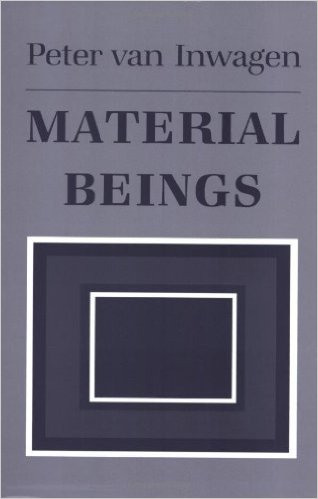You and I believe, hope, fear, and have all sorts of other intentional thoughts. We think about things. If physicalism is true, then none of us have intentional thoughts. Since we plainly do, physicalism is false. Physicalism is the view that all existent entities are describable by theories of physics. On physicalism, one cannot provide a description of a soul. Thus, souls do not exist. Same goes for abstract objects, divine beings, and inbuilt purposes. But what about those mental states of intentional thoughts? Can they be described in purely physical terms? The answer is: no. Here’s one reason why. I believe that the best days are sunny. Me believing…
-
-
Thinking Machine: No Such Thing
By thinking, I mean something more than the capacity to calculate or process information. What I mean by thinking is something like having a thought about something. I guess the best place to start thinking about thinking is me. I think I am a thinking thing. As such, I think about stuff. I believe, hope, entertain, consider, fear, and wish all the time. That’s what I mean by thinking. And a machine cannot do it, not now and not ever. By a machine I mean a material object composed of physical parts arranged in such a way as they perform a certain set of functions. Old fashioned clocks are made…
-
What is Human Nature?
During the nineteenth century, Charles Darwin presented a view that was to have a revolutionary effect on how we conceived of ourselves and our place in the world. Darwinism stood opposed to the two traditional views that had been assumed for centuries, the Classical view and the Judeo-Christian view. According to the Classical view, human nature is primarily distinguished by its rational capacities. For example, Plato considered the human soul to be composed of reason, will, and appetite. Plato thought that reason should govern the appetite and enforce its conclusions through the will. Similarly, Aristotle thought that humans are ‘rational animals’, sharing much in common with our creaturely neighbors but…
-
Capacities and Abilities
A capacity is kind of power, but it is not the same as an ability. An ability is a power that an agent has to perform some action. It is “a power to originate changes in the environment.” In contrast, a capacity is “a causal power…an invariable disposition to react to certain determinate changes in the environment in certain determinate ways.” (Van Inwagen, An Essay on Free Will, 10-11). For example, Van Inwagen distinguishes between the capacity to understand and the ability to speak. The distinction lies in the fact that though someone who has the capacity to understand French has no choice over whether or not to understand French sentences…
-
Plastic Theseus
The famed puzzle about the Theseus’ ship getting its parts replaced involves an assumption: the ship is made of wood and so are the replacement parts. But what if the parts used to replace the old parts are not wood, but plastic? Perhaps, over time, each wooden part of the ship is replaced with a plastic part. We can even follow the story where it usually goes: the old parts are reassembled in some warehouse somewhere. There lies in the warehouse an old ship with all the old wooden parts while at sea a plastic ship goes about its business bearing the famous name. The question is: does this alter…
-
Notes: Material Beings by Peter van Inwagen
“There are no visible objects but men and women and cats and other living organisms… There are no tables or books or rocks or hands or legs.”[1] 10 metaphysical presuppositions: 1. The identity relation is absolute and allows for no relative identity. Absolute identity holds that for any x, x is identical to y iff all that is true of x is true of y. Relative identity is the denial of absolute identity and suggests that identity is sortal relative. 2. Four dimensionalism, the thesis that an object’s parts include its temporal parts (time-slices) is false. 3. Logic is an ideal but the use of non-standard logics in consideration of…
-
Could God Talk to Himself?
Does the private language argument succeed if we apply it to God? Could God have a private language? A private mental entity (PME) is an entity only accessible by the mind that has it. A sensation, like toothache, is a good example (L. Wittgenstein, Philosophical Investigations). No one apart from the person with toothache has access to that toothache. But a thought might also count as a PME. A human thought is usually about something public, a tree perhaps, but it might be about something private like a sensation. Thoughts like these are privately owned. My thought that the Christmas tree looks good is my thought; I own it, it is had…
-
Why The Hard Sciences Need a Little “Mystery”
Micheal Graziano thinks that consciousness, the apparent ability of human beings to have qualitative experiences, is not mysterious, at least it can’t be explained by mysterious methods. By mysterious, he means any method of enquiry that is not a hard science: The study of consciousness needs to be lifted out of the mysticism that has dominated it. Consciousness is not just a matter of philosophy, opinion, or religion. It’s a matter of hard science. It’s a matter of understanding the brain and the mind—a trillion-stranded sculpture made out of information. It’s also a matter of engineering. If we can understand the functionality of the brain, then we can build the…





